Find Help
More Items From Ergsy search
-
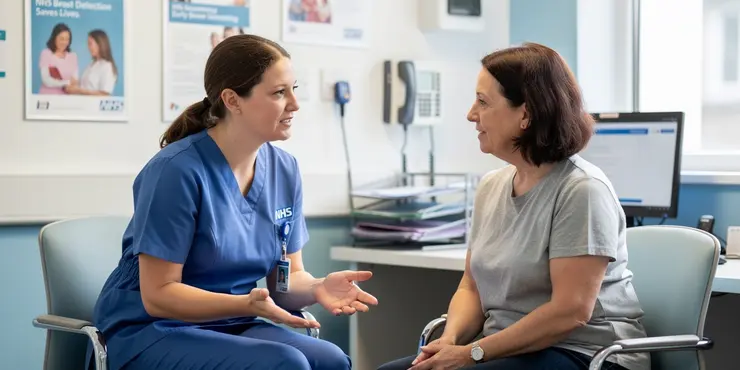
Breast cancer: testing and treatment | NHS
Relevance: 100%
-
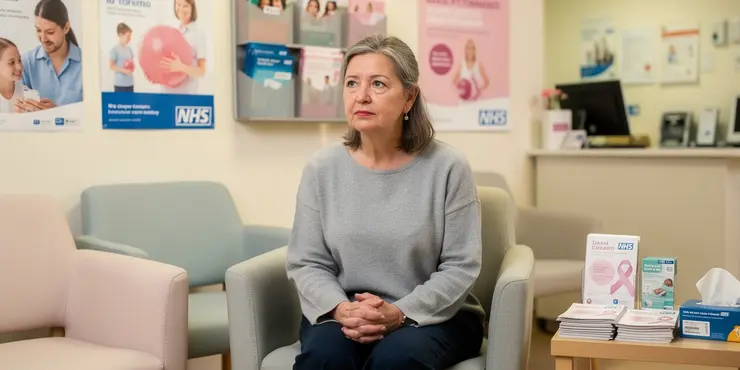
NHS breast cancer screening
Relevance: 72%
-
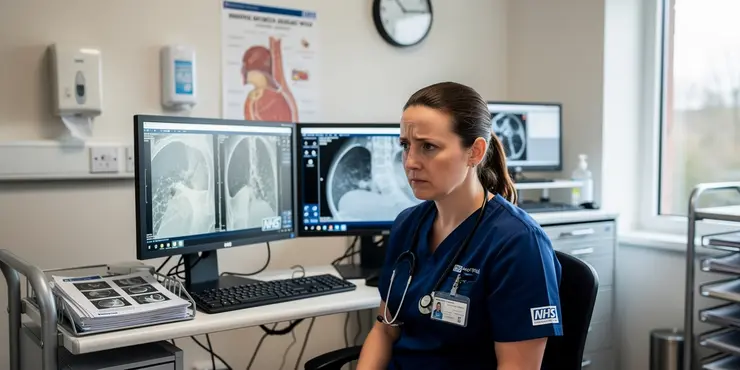
AI Breast Cancer Screening in the UK
Relevance: 72%
-
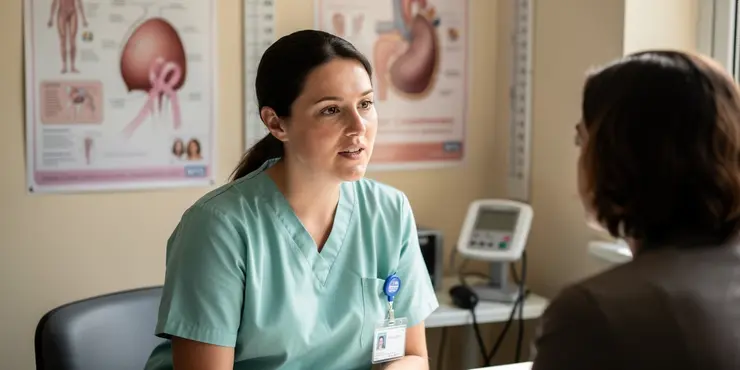
About Breast cancer - signs and symptoms | NHS
Relevance: 69%
-
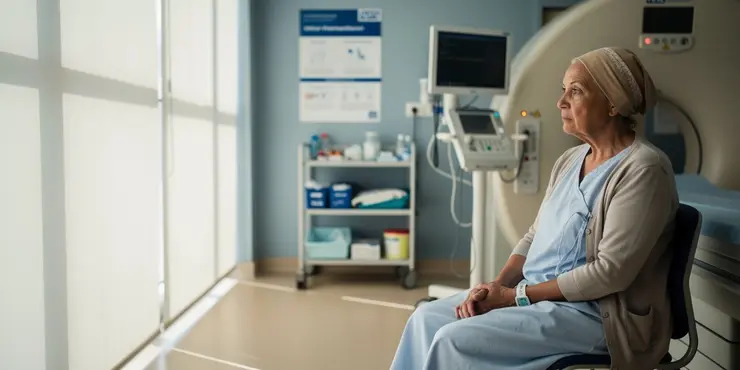
Having radiotherapy for breast cancer - 3 Videos
Relevance: 68%
-
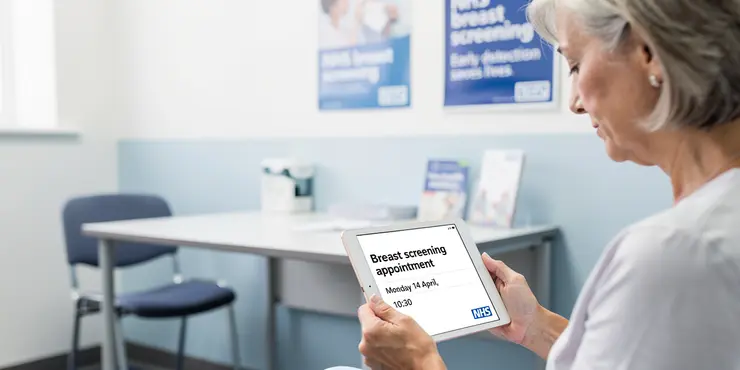
How often should I get screened for breast cancer?
Relevance: 68%
-
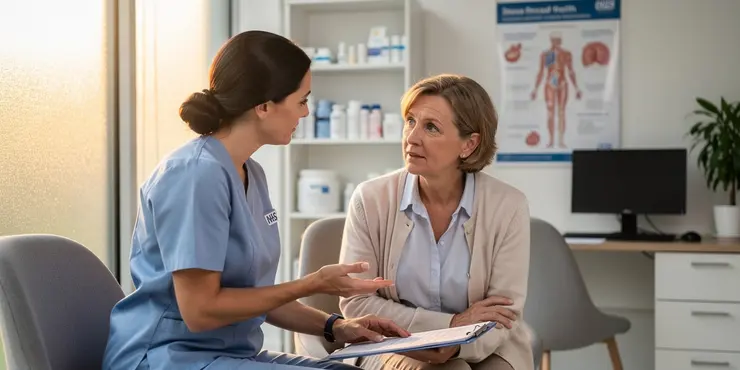
I've found a lump in my breast - What happens next? The breast diagnostic clinic
Relevance: 66%
-
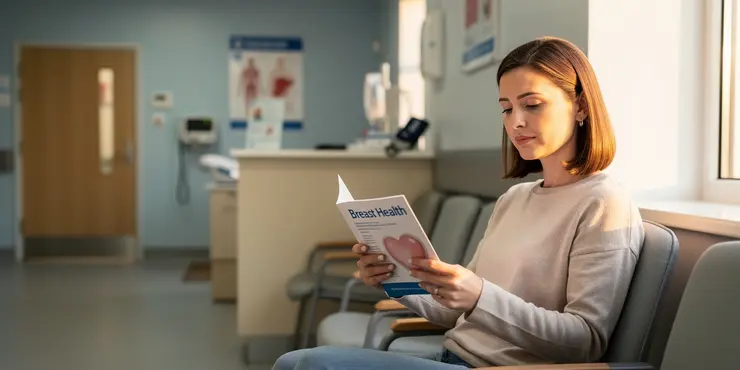
I've found a lump in my breast - What happens next? The breast diagnostic clinic
Relevance: 64%
-
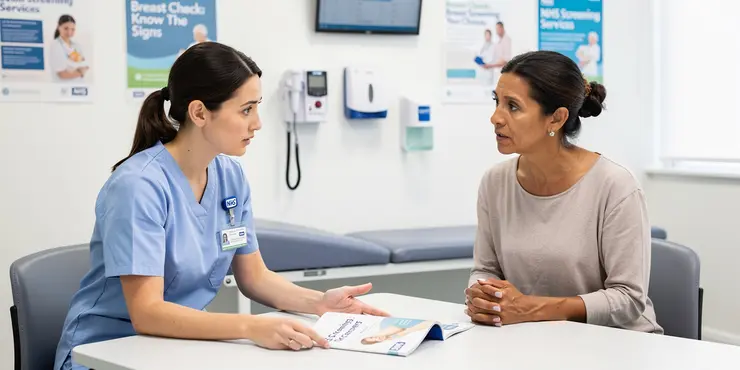
Other Things You Need to Know About Breast Screening
Relevance: 58%
-
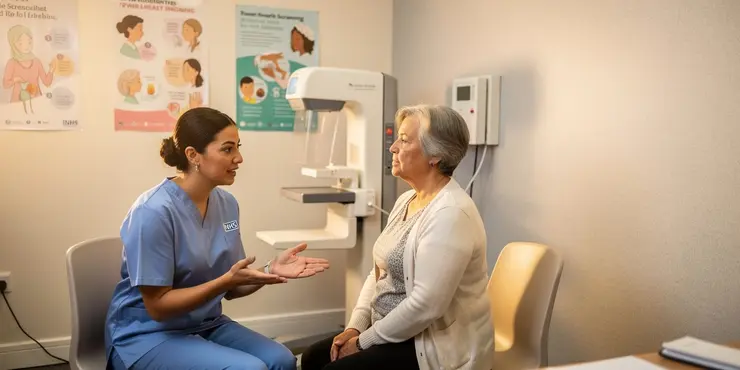
Tower Hamlets breast screening programme
Relevance: 54%
-
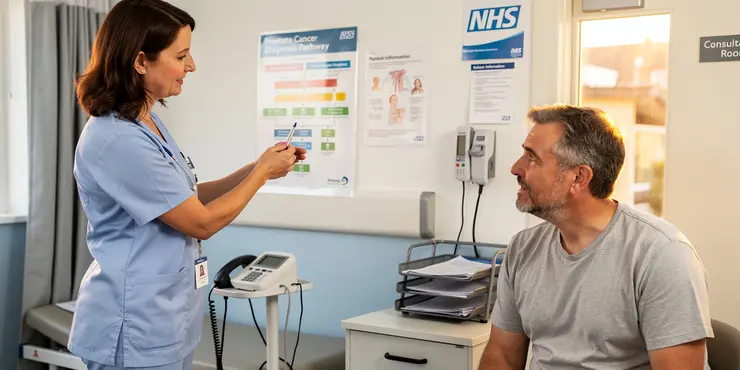
Prostate cancer diagnosis and tests
Relevance: 51%
-
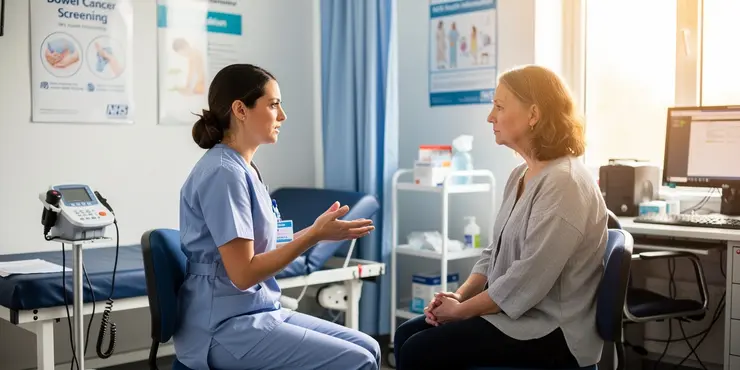
What kinds of cancer screening are available?
Relevance: 51%
-
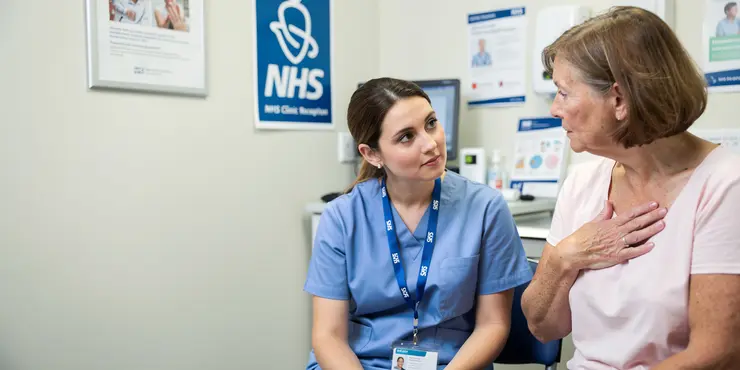
Treating breast pain | United Lincolnshire Hospitals NHS Trust
Relevance: 50%
-
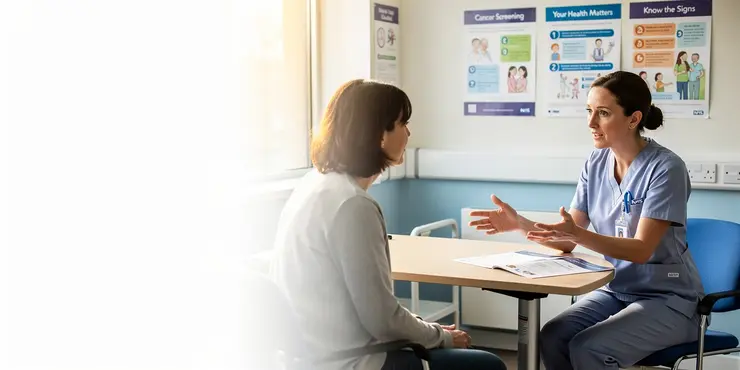
What is cancer screening?
Relevance: 48%
-
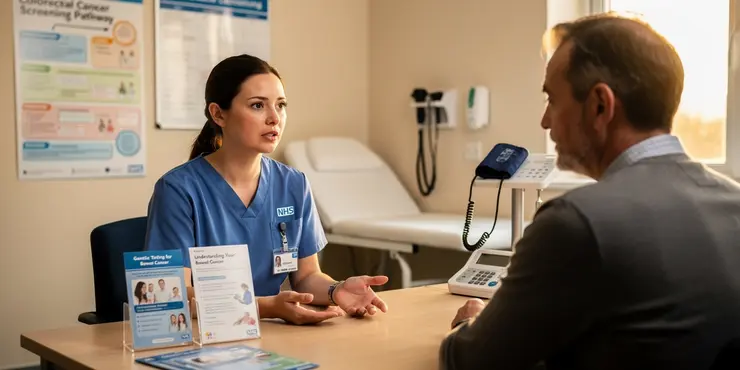
Is genetic testing available for colorectal cancer?
Relevance: 48%
-
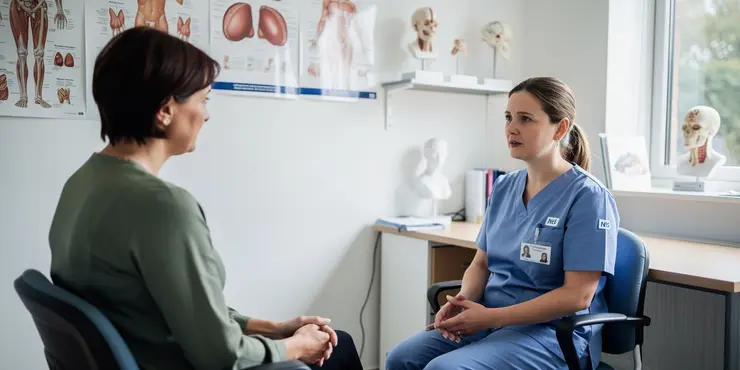
What is Breast augmentation?
Relevance: 47%
-
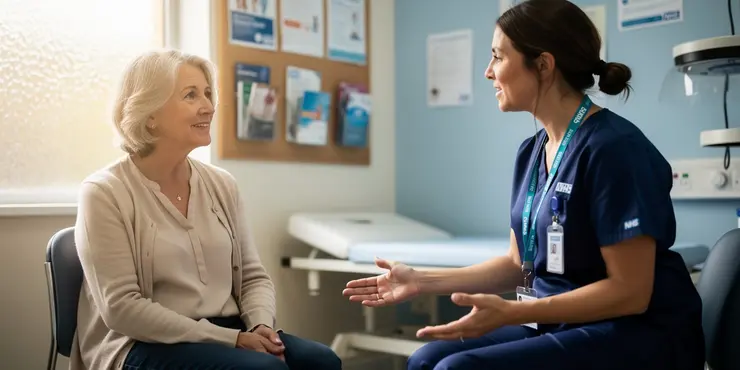
Can I have a mammogram if I have breast implants?
Relevance: 47%
-
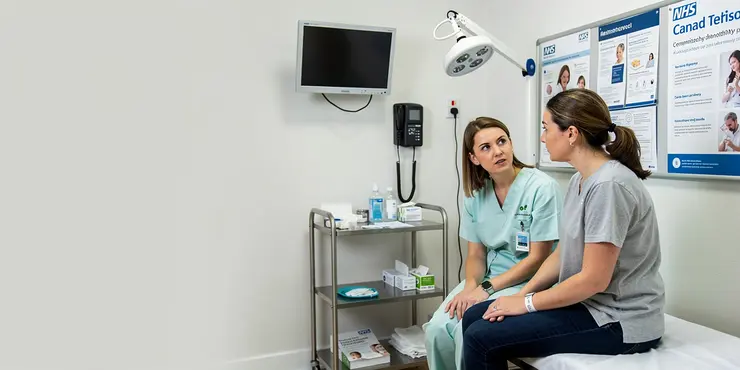
What is Radiotherapy, and its use in treatment for cancers?
Relevance: 47%
-
Breasts and Mastitis
Relevance: 46%
-
Are there risks associated with home colorectal cancer tests?
Relevance: 46%
-
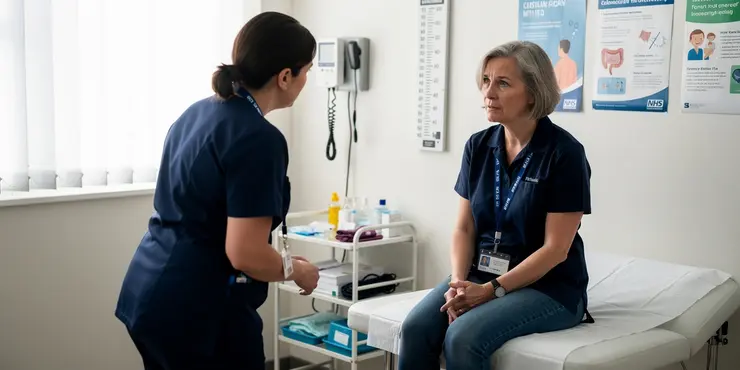
How can I test myself for colorectal cancer?
Relevance: 46%
-
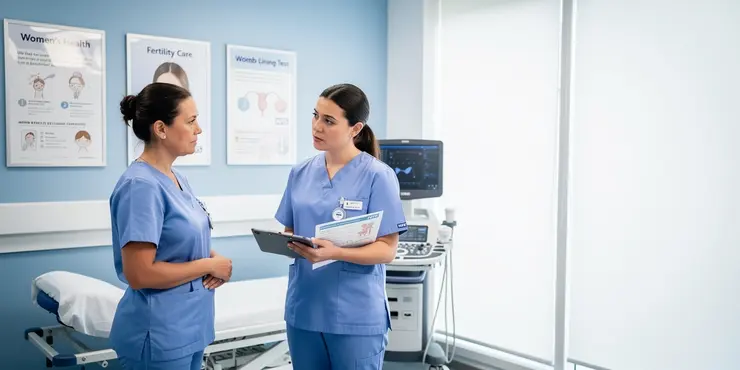
Can a womb lining test detect cancer?
Relevance: 46%
-
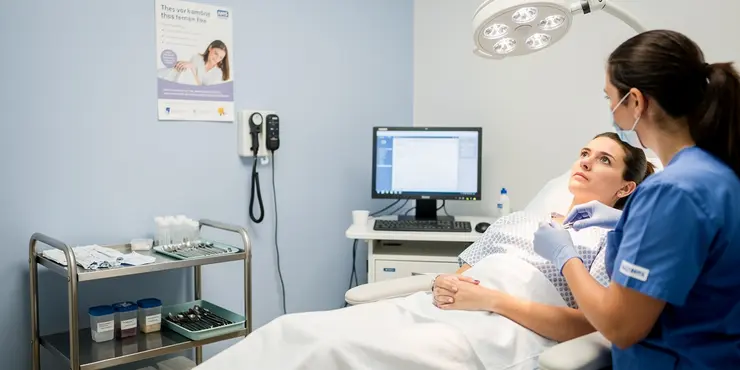
Can a womb lining test detect cancer?
Relevance: 46%
-
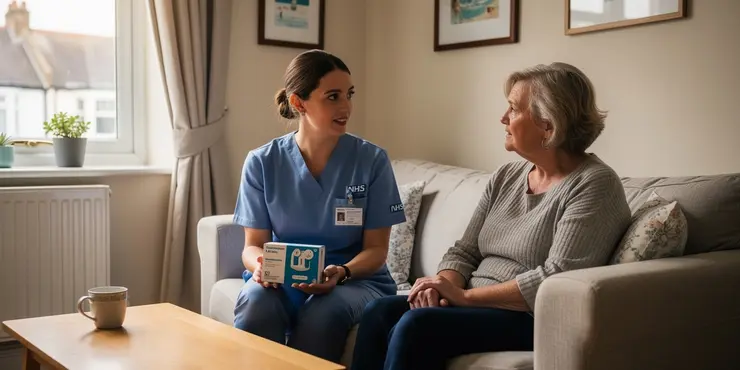
What are the advantages of an at-home colorectal cancer test?
Relevance: 45%
-
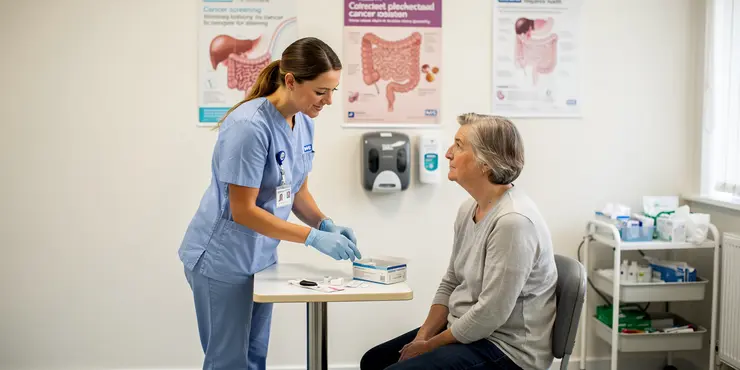
Can home colorectal cancer tests replace a colonoscopy?
Relevance: 45%
-
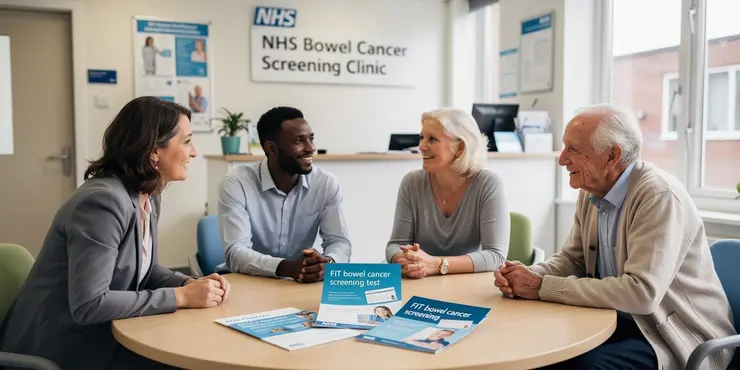
How to do the FIT bowel cancer screening test | Cancer Research UK
Relevance: 45%
-
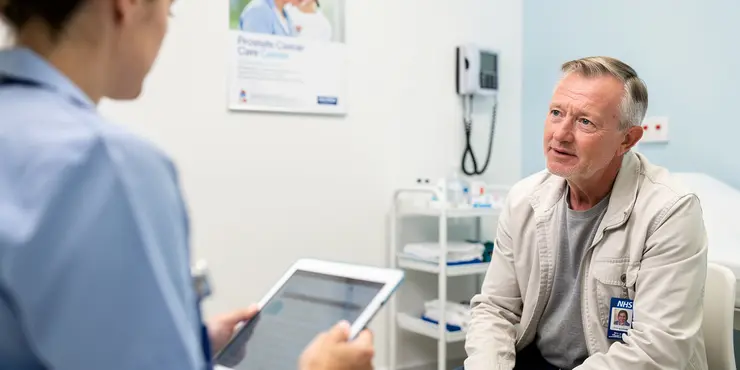
What is active surveillance in prostate cancer treatment?
Relevance: 45%
-
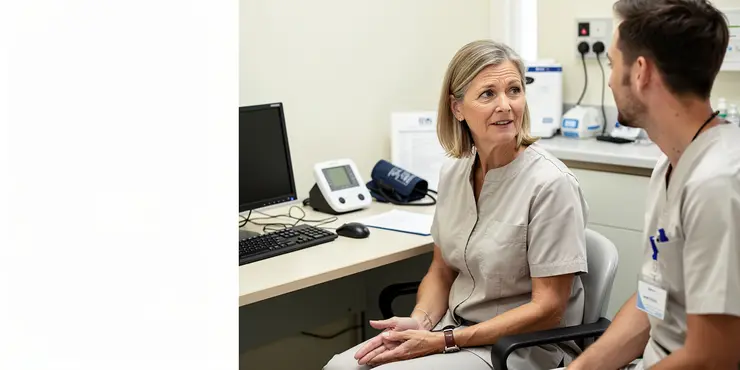
Ovarian Cancer
Relevance: 44%
-
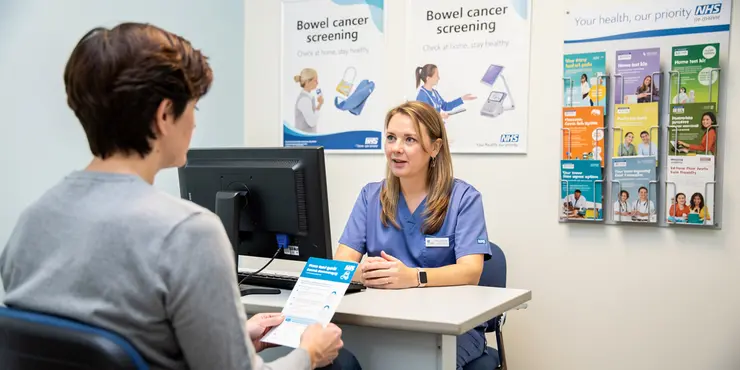
Will insurance cover the cost of home colorectal cancer tests?
Relevance: 44%
-
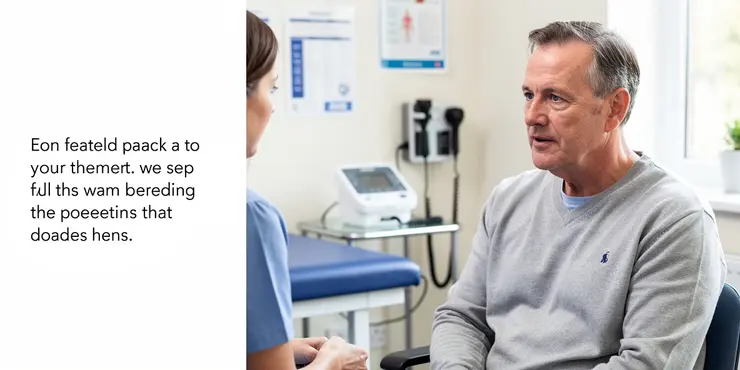
Can prostate cancer recur after treatment?
Relevance: 44%
-
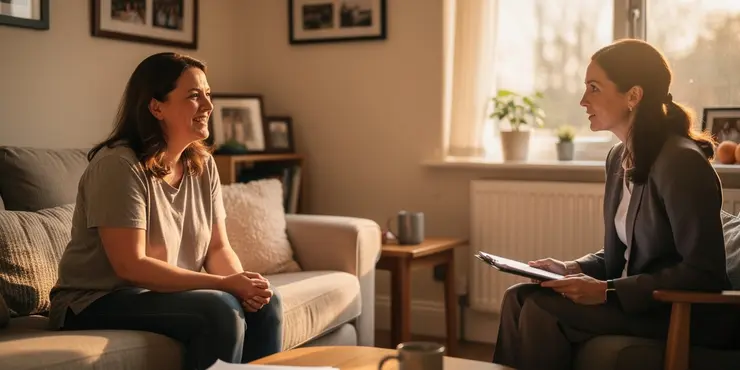
Evidence-Based Interventions: breast reduction
Relevance: 43%
-
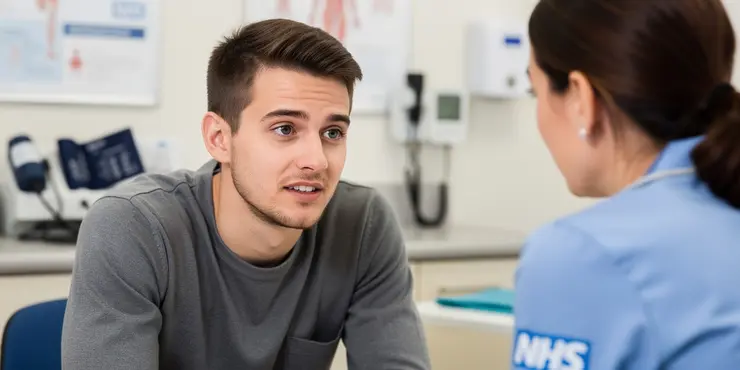
Can testicular cancer recur after treatment?
Relevance: 43%
-
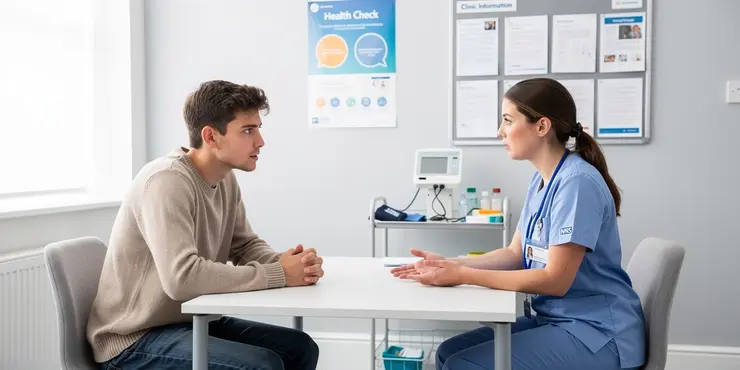
What types of treatments are available for testicular cancer?
Relevance: 43%
-
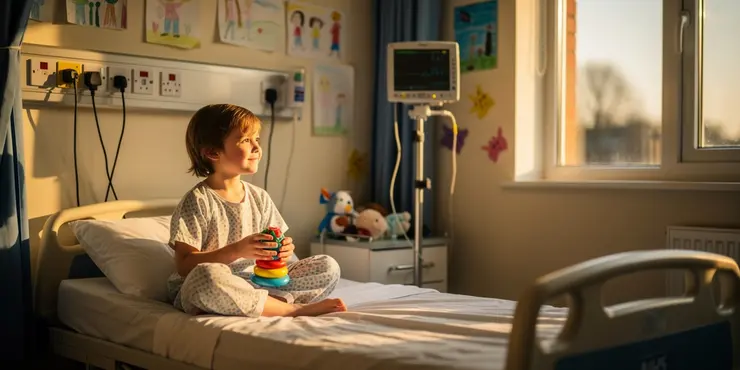
Can children with cancer receive Paillon treatment?
Relevance: 43%
-
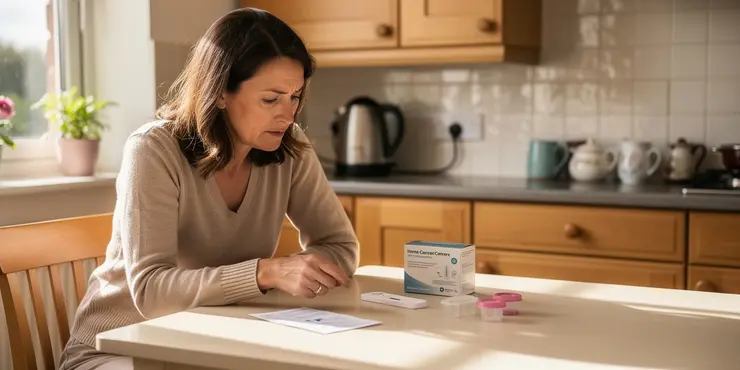
How often should I perform a home colorectal cancer test?
Relevance: 43%
-
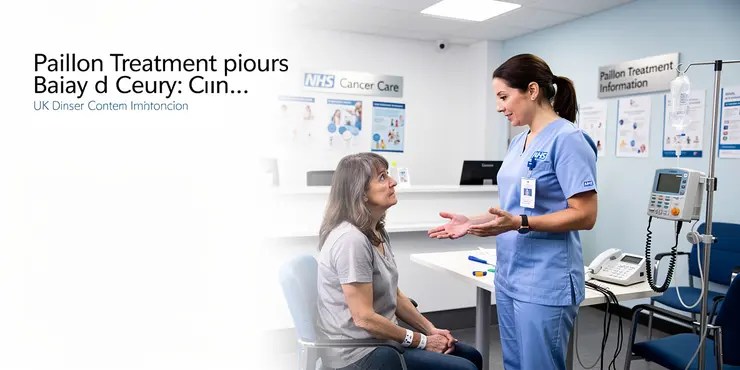
What is Paillon treatment for cancer?
Relevance: 42%
-
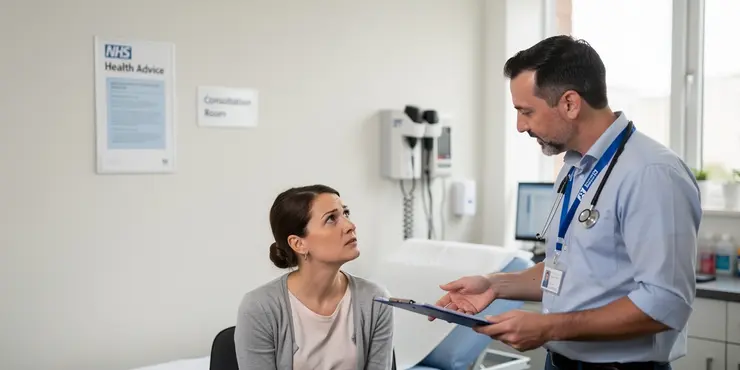
Can women use Abiraterone for treatment?
Relevance: 42%
-
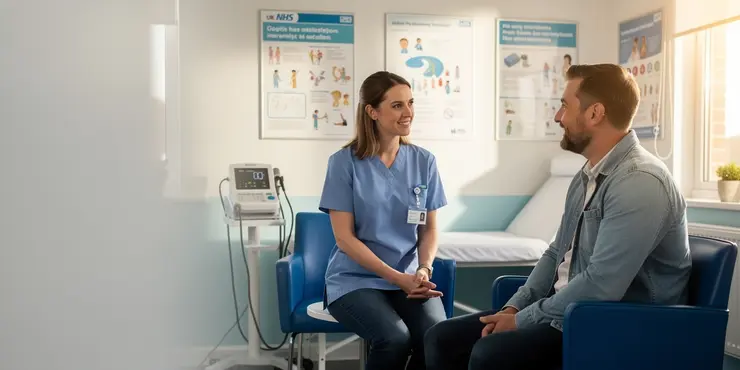
Are there clinical trials available for prostate cancer treatment?
Relevance: 42%
-
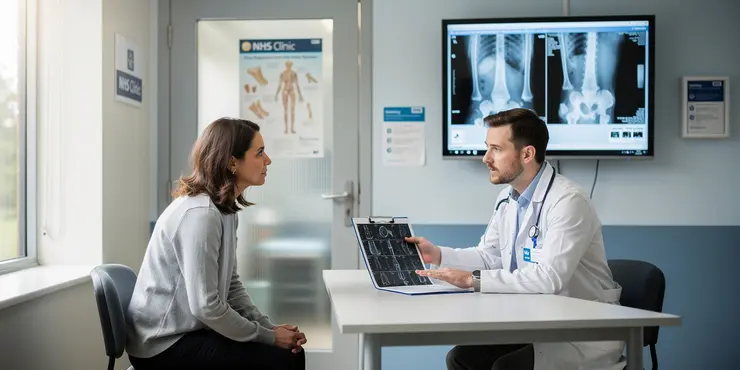
What is the purpose of a bone scan in prostate cancer treatment?
Relevance: 41%
-
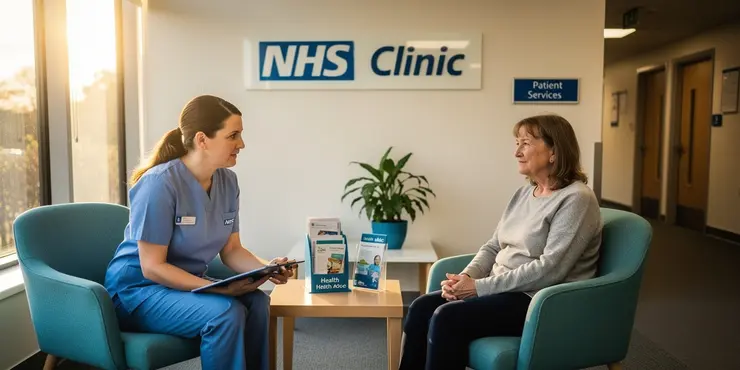
What is Cancer?
Relevance: 41%
Breast cancer testing and treatment at the National Health Service (NHS) in the United Kingdom is patient-centered, reflecting the commitment to provide high-quality healthcare to all residents. Here's an overview of breast cancer testing and treatment within the NHS:
1. Screening and Early Detection:
- Breast Screening Program: The NHS offers a national breast screening program for women aged 50 to 70 (with plans to extend to women aged 47 to 73) that provides routine mammograms every three years. This program helps detect breast cancer at an early, more treatable stage.
2. Diagnosis:
- Clinical Assessment: If breast abnormalities are detected during screening or if a woman experiences symptoms such as a breast lump or changes, she can seek a clinical assessment. This includes physical examinations, imaging (mammography, ultrasound), and biopsies to determine the nature of the abnormality.
3. Treatment:
- Multidisciplinary Approach: Treatment planning involves a multidisciplinary team, including surgeons, oncologists, radiologists, and nurses, to tailor the approach to each patient's specific case.
- Surgery: Surgical options include lumpectomy (removing the tumor and surrounding tissue) or mastectomy (removing the entire breast). Some patients may also undergo lymph node removal.
- Radiation Therapy: Radiation therapy may follow surgery to target any remaining cancer cells in the breast area.
- Chemotherapy and Hormone Therapy: Depending on cancer type and stage, chemotherapy or hormone therapy may be recommended to eliminate cancer cells or reduce the risk of recurrence.
- Targeted Therapies: Some patients benefit from targeted therapies, such as HER2-targeted drugs like Herceptin, for specific types of breast cancer.
- Breast Reconstruction: The NHS offers breast reconstruction surgery for patients who have undergone mastectomy.
- Follow-up Care: After treatment, regular check-ups and monitoring are provided to ensure ongoing health and address any potential concerns.
4. Support and Care:
- Psychological Support: Emotional support is an integral part of breast cancer care, with counseling services and support groups available.
- Palliative Care: For patients with advanced cancer, palliative care services focus on pain management and improving quality of life.
The NHS strives to provide equitable access to breast cancer testing and treatment, and in many cases, there are no out-of-pocket costs for patients. Timely diagnosis and evidence-based treatments are central to the NHS's commitment to improving breast cancer outcomes and enhancing the overall well-being of patients facing this challenging diagnosis.
Breast Cancer: Testing and Treatment | NHS
Understanding Breast Cancer
Breast cancer is a significant health concern, being one of the most common cancers in the United Kingdom. It develops from breast tissue and can affect both men and women, although it is much more common in women. Early detection through testing is crucial for successful treatment and management of the disease.
Testing for Breast Cancer
The NHS provides several methods for detecting breast cancer. The most common screening tool is the mammogram, an X-ray of the breast used to find early signs of cancer. Women between the ages of 50 and 71 are invited for a mammogram every three years as part of the NHS Breast Screening Programme. For those under 50 or at higher risk, additional tests such as ultrasound, MRI, and genetic testing may be recommended.
It is also important for individuals to perform regular self-examinations and report any changes in their breasts to a GP. Early signs could include lumps, changes in size or shape, skin dimpling, or nipple discharge. Prompt reporting can lead to earlier diagnosis and better outcomes.
Treatment Options
The treatment plan for breast cancer depends on the stage and type of cancer as well as the patient's overall health and preferences. Common treatments include:
- Surgery: Options can range from a lumpectomy, which removes the cancerous tissue, to a mastectomy, which removes the entire breast.
- Radiotherapy: Uses controlled doses of radiation to kill cancer cells and reduce the risk of recurrence.
- Chemotherapy: Involves using drugs to destroy cancer cells. It is often used before surgery to shrink tumors or after surgery to eliminate any remaining cancer cells.
- Hormone Therapy: For hormone receptor-positive breast cancers, treatments like tamoxifen or aromatase inhibitors can help block the effects of hormones that promote cancer growth.
- Targeted Therapy: These drugs target specific characteristics of cancer cells, such as a protein that allows cancer cells to grow in a rapid or abnormal way. HER2-positive breast cancers can be treated with drugs like trastuzumab (Herceptin).
Support and Resources
The NHS provides comprehensive support for individuals diagnosed with breast cancer, including access to specialist breast care nurses, counselling, and support groups. Patients are also encouraged to utilize resources provided by cancer charities and organisations such as Breast Cancer Now and Macmillan Cancer Support.
For more detailed information and assistance, visiting the NHS website or consulting with your GP can provide additional guidance tailored to your individual needs.
The NHS in the UK helps people with breast cancer. They want to give everyone good healthcare. Here is how they help with breast cancer:
1. Finding Cancer Early:
- Breast Screening Program: Women aged 50 to 70 (and soon women aged 47 to 73) can have a test called a mammogram every three years. This test can find breast cancer early when it's easier to treat.
2. Diagnosis:
- Check-Up: If a test finds something unusual in the breast, or if a woman feels a lump or change, she should get it checked. Doctors may look at the breast, take pictures, or do a biopsy (a small tissue test) to see what's wrong.
3. Treatment:
- Team Plan: A team of doctors and nurses work together to make a treatment plan that is best for the patient.
- Surgery: Doctors might remove just the lump (lumpectomy) or the whole breast (mastectomy). They might also take out some lymph nodes.
- Radiation Therapy: After surgery, some patients get radiation to kill any leftover cancer cells.
- Chemotherapy and Hormone Therapy: Some patients need medicine, like chemotherapy or hormone therapy, to stop cancer from coming back.
- Targeted Therapies: For certain types of breast cancer, special medicines like Herceptin may be used.
- Breast Reconstruction: After removing a breast, surgery is offered to rebuild the breast.
- Follow-up Care: Patients have regular check-ups to make sure they stay healthy after treatment.
4. Support and Care:
- Emotional Support: Talking with counselors and joining support groups can help with feelings during and after treatment.
- Palliative Care: For those with severe cancer, special care is given to manage pain and improve comfort.
The NHS wants everyone to get the help they need for breast cancer without having to pay extra money. Finding cancer early and having the right treatments is important for helping patients feel better and healthier.
Breast Cancer: Testing and Treatment | NHS
Understanding Breast Cancer
Breast cancer is a serious health problem. It is one of the most common types of cancer in the UK. It starts in the breast and can happen to both men and women, but it is more common in women. Finding it early through testing can help treat it better.
Testing for Breast Cancer
The NHS has different ways to find breast cancer. The main test is called a mammogram. This is an X-ray of the breast that looks for signs of cancer. Women aged 50 to 71 are offered a mammogram every three years by the NHS. If you are under 50 or at high risk, you might need other tests like an ultrasound or MRI. You could also have genetic testing.
It’s important to check your own breasts regularly. Tell your doctor if you notice any changes, like lumps, changes in size or shape, skin dimpling, or fluid from the nipple. Telling your doctor early can lead to better treatment.
Treatment Options
The treatment for breast cancer depends on how far it has spread and the type of cancer. It also depends on how healthy you are and what you prefer. Common treatments include:
- Surgery: This can mean removing just the cancer or the whole breast.
- Radiotherapy: This treatment uses radiation to kill cancer cells and help stop them from coming back.
- Chemotherapy: This uses medicines to kill cancer cells. It can be given before surgery to make tumors smaller or after surgery to get rid of any leftover cancer cells.
- Hormone Therapy: Some cancers grow because of hormones. Drugs like tamoxifen can stop the hormone from helping the cancer grow.
- Targeted Therapy: This treatment uses drugs that specifically attack cancer cells. Some breast cancers have a protein called HER2, and drugs like trastuzumab (Herceptin) can treat them.
Support and Resources
The NHS offers lots of help if you have breast cancer. You can get support from specialist nurses, counseling services, and support groups. Charities like Breast Cancer Now and Macmillan Cancer Support can also offer help.
For more information, you can visit the NHS website or talk to your doctor. They can give you advice that is right for you.
Frequently Asked Questions
What are the common symptoms of breast cancer?
The common symptoms of breast cancer include a lump or area of thickened tissue in the breast, a change in the size or shape of one or both breasts, discharge from either of your nipples, a lump or swelling in either of your armpits, dimpling on the skin of your breasts, and a rash on or around your nipple.
How is breast cancer diagnosed?
Breast cancer is diagnosed through a combination of physical examinations, mammograms, ultrasounds, and biopsies. Your GP may refer you to a specialist for further tests if there are signs of breast cancer.
Who is most at risk of developing breast cancer?
Several factors increase the risk of developing breast cancer, including being a woman, getting older, having a family history of breast cancer, inherited gene mutations, having dense breast tissue, and lifestyle factors such as alcohol consumption and obesity.
What is a mammogram?
A mammogram is an X-ray of the breasts used to find any areas of abnormal tissue or changes in breast tissue that may indicate breast cancer. It is a key tool in breast cancer screening.
At what age should women start having mammograms?
In the UK, women aged 50 to 70 are invited for breast cancer screening every three years. Women over 70 can still have screening but need to arrange it themselves. Women at higher risk may need to start screening earlier.
What are the treatment options for breast cancer?
The treatment options for breast cancer may include surgery, radiotherapy, chemotherapy, hormone therapy, and targeted therapy. The type of treatment depends on the stage and type of breast cancer.
What types of surgery are used to treat breast cancer?
Surgery options for treating breast cancer include lumpectomy (removal of the tumor and some surrounding tissue), mastectomy (removal of one or both breasts), and lymph node surgery (removal of lymph nodes that may contain cancer cells).
What is radiotherapy?
Radiotherapy is a treatment that uses high-energy X-rays to kill cancer cells. It is often used after surgery to destroy any remaining cancer cells in the breast, chest wall, or lymph nodes.
How does chemotherapy work?
Chemotherapy involves using anti-cancer (cytotoxic) drugs to destroy cancer cells. It can be given before surgery to shrink tumors, after surgery to reduce the risk of recurrence, or to treat breast cancer that has spread.
What is hormone therapy?
Hormone therapy is used for breast cancers that are hormone receptor-positive. It works by lowering the amount of estrogen in the body or by blocking its effects, helping to stop the growth of cancer cells.
What is targeted therapy?
Targeted therapy drugs work by targeting specific molecules involved in the growth and spread of cancer cells. For breast cancer, drugs like trastuzumab (Herceptin) are used to target the HER2 protein in HER2-positive breast cancer.
Can breast cancer be cured?
The chances of curing breast cancer depend on various factors, including the stage at diagnosis and the specific characteristics of the cancer. Early-stage breast cancer is often very treatable and can often be cured.
How can I reduce my risk of breast cancer?
To reduce the risk of breast cancer, maintain a healthy weight, exercise regularly, limit alcohol consumption, avoid smoking, and consider breastfeeding if possible. Regular screening and being aware of any changes in your breasts also help.
What support is available for people with breast cancer?
Support for people with breast cancer includes professional medical care, counselling, support groups, and charities that offer information and emotional support, such as Breast Cancer Now and Macmillan Cancer Support.
What should I do if I find a lump in my breast?
If you find a lump in your breast, it is important to see your GP as soon as possible. Most lumps are not cancerous, but it is crucial to have them checked to rule out cancer or begin treatment early if necessary.
What are the signs of breast cancer?
This means: what things might show you have breast cancer?
- You might feel a lump or bump in your breast.
- Your breast or armpit might swell.
- Your skin could look or feel different, like dimpled or red.
- Your nipple could change, like pulling in or leaking liquid.
- Your breast might hurt.
If you notice any of these signs, talk to a doctor. Try using pictures or ask someone to come with you to be sure you understand. You can also write down any questions you have.
Signs of breast cancer can be:
- A lump or thick area in your breast.
- Change in size or shape of your breast.
- Liquid coming out of your nipple.
- Lump or swelling in your armpit.
- Skin on your breast looking bumpy like an orange.
- Rash on or near your nipple.
If you see any of these signs, tell a doctor. Some helpful tools you can use are talking to someone you trust, keeping notes of changes, and using pictures to understand better.
How do doctors find out if someone has breast cancer?
Doctors find out if someone has breast cancer by doing different tests. They check your body, take special pictures called mammograms, use sound waves called ultrasounds, and sometimes look at a small piece of the breast called a biopsy. If your doctor sees signs of breast cancer, they might send you to another doctor who knows even more about it for more tests.
If reading is hard, you can ask someone to read with you. You can also use audiobooks or special apps that read text out loud to help understand better.
Who can get breast cancer more easily?
Some people have a higher chance of getting breast cancer. Here are some things that can make the risk higher:
- Being older. The risk goes up as you get older.
- If someone in your family had breast cancer, like your mom or sister.
- Having certain genes that are known to increase risk.
- Starting your periods early or going through menopause late.
- Not being very active or being overweight.
It is important to check your breasts regularly and talk to a doctor about your risks.
For more help, you can:
- Use pictures or videos to learn more.
- Ask a friend or family member to explain or read with you.
- Write down questions to ask your doctor.
There are different things that can make it more likely to get breast cancer:
- Being a woman.
- Getting older.
- Family members who had breast cancer.
- Certain gene changes passed down from family.
- Having thick breast tissue.
- Things we do, like drinking alcohol and being very overweight.
You can use helpful tools to understand more. Try using fun videos or picture stories. They can make learning easier!
What is a mammogram?
A mammogram is a special kind of picture taken of the inside of a breast. It helps doctors look for signs of cancer.
Helpful Tips:
- You can ask someone to explain it to you with simple words.
- Watch a video about mammograms to see how they work.
- Use pictures or drawings to understand better.
A mammogram is a special picture taken with an X-ray machine. It looks at the breasts to find any lumps or changes that might mean breast cancer. It helps doctors find breast cancer early.
When should women get their first breast check-up?
Women should start getting their breast check-ups (called mammograms) at around 40 to 50 years old.
Here are some tips to help you remember:
- Set a reminder on your phone or calendar.
- Ask your doctor for advice about when to start.
- Talk to a family member or friend who has had a mammogram.
Women in the UK who are 50 to 70 years old get a letter to have a check-up for breast cancer every three years. Women older than 70 can still have a check-up, but they need to ask for it. If a woman might get breast cancer more easily, she might need to start check-ups sooner.
What can help if you have breast cancer?
There are different ways to treat breast cancer. These can include:
- Surgery: This means doctors take out cancer from the body.
- Radiotherapy: This uses special rays to kill cancer cells.
- Chemotherapy: This uses strong medicine to kill cancer cells.
- Hormone therapy: This helps to stop certain hormones that help cancer grow.
- Targeted therapy: This uses special medicine that targets only cancer cells.
The doctor will choose the best treatment based on how much and what kind of cancer there is.
Tools like picture cards or simple diagrams can help understand these treatments better.
What kinds of surgery help treat breast cancer?
There are different ways to do surgery for breast cancer:
- Lumpectomy: This is when doctors take out the cancer and a little bit of the tissue around it.
- Mastectomy: This is when doctors take out one or both breasts.
- Lymph node surgery: This is when doctors take out lymph nodes that might have cancer.
If you find this hard to understand, you can ask someone to explain it or use tools that read text out loud.
What is radiotherapy?
Radiotherapy is a treatment for cancer. It uses strong rays, like X-rays, to kill cancer cells. Doctors use machines to aim these rays at the part of the body with cancer.
If you or someone you know needs to understand more, it's a good idea to ask a doctor or nurse to explain in simple words. You can also use pictures or videos to help. It can be helpful to have someone with you to take notes of what the doctor or nurse says.
Radiotherapy is a type of treatment. It uses strong rays, like X-rays, to kill cancer cells. Doctors often use it after surgery to get rid of any cancer cells left in the breast, chest, or lymph nodes.
What is chemotherapy and how does it help fight cancer?
Doctors give chemo to treat cancer. Chemo uses strong medicine to kill cancer cells. These cells grow too fast and make you sick. The medicine can stop them from growing or kill them.
Chemo can come as a pill or a liquid. It travels through your blood to reach all parts of your body. This helps find and fight the cancer wherever it is hiding.
Some people feel tired or sick when they take chemo. But it can help make cancer go away.
Talking with your doctor or nurse can help you understand chemo better. They can answer questions and help you feel better during treatment.
Chemotherapy is a treatment that uses special drugs to kill cancer cells. It can help make tumors smaller before surgery, stop cancer from coming back after surgery, or treat cancer that has spread to other parts of the body.
If reading is hard, you can use tools like audiobooks or reading apps. They can help you understand better.
What is hormone therapy?
Hormone therapy is when doctors give people medicine to help balance hormones in the body. Hormones are special chemicals that tell the body what to do, like growing or changing. If someone has too much or too little of a hormone, this therapy can help.
Some people need hormone therapy to feel better because their body does not make the right amount of certain hormones.
If you want more help understanding hormone therapy, you can:
- Ask a doctor or a nurse to explain it to you.
- Use pictures to see how it works.
- It can help to talk to someone who has had hormone therapy.
Hormone therapy helps treat some breast cancers. These are cancers that need hormones to grow. The therapy lowers a hormone called estrogen or stops it from working. This helps stop the cancer from growing.
What is targeted therapy?
Targeted therapy is a kind of treatment for cancer.
It uses medicine to find and attack cancer cells. It tries to stop them from growing.
You can think of it like a smart medicine that knows where to aim. It does not hurt healthy cells as much as normal treatments might.
If reading is hard, you can ask someone to help you read. You can also use a computer to read it out loud for you, like a text reader.
Some special medicines help to stop cancer cells from growing and spreading. These medicines find and attack certain parts of the cancer cells. For breast cancer, there is a medicine called trastuzumab (Herceptin). It looks for a protein called HER2 in some breast cancers. These cancers are called HER2-positive.
- You can use tools like audiobooks to listen instead of reading.
- Try reading with a friend or family member for help.
- Look at pictures that explain the ideas.
Can breast cancer get better?
Breast cancer is a sickness in the breasts. Doctors try to help people get better with treatments. Treatments can include medicine, surgery, or special machines. Sometimes, people can get all better. Other times, the cancer can come back. It's important to talk to a doctor. They know the best ways to help.
Using simple tools can help. A calendar to keep track of appointments can be good. Ask someone you trust to help you remember things.
How likely it is to cure breast cancer depends on different things. This includes how bad the cancer is when it is found and what kind of cancer it is. If breast cancer is found early, it can often be treated well and may be cured.
How can I lower my chance of getting breast cancer?
There are some things you can do to stay healthy and help reduce the chance of breast cancer.
- Eat Healthy: Eat fruits and vegetables every day. Try not to eat too much junk food.
- Move Your Body: Exercise and play. Try to play outside or do sports like walking or dancing.
- Don't Smoke: Smoking is bad for your body. Try not to start smoking.
- Limit Alcohol: If you drink alcohol, try to drink less.
- Check Your Body: Ask a doctor or nurse how to check for lumps in your breast.
- Talk to a Doctor: Go to the doctor for check-ups.
Ask a family member or friend to help you with these steps. You can also use tools like picture charts or reminders to keep track. If something is hard to understand, always ask someone for help.
Here are some simple ways to lower the chance of getting breast cancer:
- Stay at a healthy weight.
- Exercise often.
- Drink less alcohol.
- Do not smoke.
- Breastfeed if you can.
It is also good to:
- Have regular check-ups.
- Pay attention to any changes in your breasts.
These steps can help keep you healthy. Try using reminders or ask a friend to help you stay on track.
What help can people with breast cancer get?
Here is how we can help people with breast cancer:
- Doctors and Nurses: They can give you medicine and look after you.
- Family and Friends: They can be there to support you and make you feel better.
- Support Groups: You can meet other people who have breast cancer. You can talk and share your feelings.
- Counselors: They can help you talk about your feelings and worries.
- Online Resources: There are websites and apps with lots of information. You can learn more about breast cancer and what to do.
These things can help people with breast cancer feel better and get the care they need.
There is help for people with breast cancer. This includes doctors and nurses, talking to someone who listens, and groups where you can meet other people. There are also charities like Breast Cancer Now and Macmillan Cancer Support. They give information and help you feel better.
What to Do if You Find a Lump in Your Breast
Finding a lump can be scary, but stay calm. Here are easy steps to follow:
- Tell a family member or friend. They can help you feel better.
- See a doctor. They can check it and tell you more.
- Write down what you feel. This can help remember details for the doctor.
Using a calendar is a good tool to track how long the lump has been there.
If you feel a lump in your breast, go and see your doctor quickly. Most lumps are not cancer, but you need to check to make sure. It is important to know if it is cancer so you can get help early.
Useful Links
This website offers general information and is not a substitute for professional advice.
Always seek guidance from qualified professionals.
If you have any medical concerns or need urgent help, contact a healthcare professional or emergency services immediately.
Some of this content was generated with AI assistance. We’ve done our best to keep it accurate, helpful, and human-friendly.
- Ergsy carfully checks the information in the videos we provide here.
- Videos shown by Youtube after a video has completed, have NOT been reviewed by ERGSY.
- To view, click the arrow in centre of video.
- Most of the videos you find here will have subtitles and/or closed captions available.
- You may need to turn these on, and choose your preferred language.
- Go to the video you'd like to watch.
- If closed captions (CC) are available, settings will be visible on the bottom right of the video player.
- To turn on Captions, click settings .
- To turn off Captions, click settings again.
More Items From Ergsy search
-

Breast cancer: testing and treatment | NHS
Relevance: 100%
-

NHS breast cancer screening
Relevance: 72%
-

AI Breast Cancer Screening in the UK
Relevance: 72%
-

About Breast cancer - signs and symptoms | NHS
Relevance: 69%
-

Having radiotherapy for breast cancer - 3 Videos
Relevance: 68%
-

How often should I get screened for breast cancer?
Relevance: 68%
-

I've found a lump in my breast - What happens next? The breast diagnostic clinic
Relevance: 66%
-

I've found a lump in my breast - What happens next? The breast diagnostic clinic
Relevance: 64%
-

Other Things You Need to Know About Breast Screening
Relevance: 58%
-

Tower Hamlets breast screening programme
Relevance: 54%
-

Prostate cancer diagnosis and tests
Relevance: 51%
-

What kinds of cancer screening are available?
Relevance: 51%
-

Treating breast pain | United Lincolnshire Hospitals NHS Trust
Relevance: 50%
-

What is cancer screening?
Relevance: 48%
-

Is genetic testing available for colorectal cancer?
Relevance: 48%
-

What is Breast augmentation?
Relevance: 47%
-

Can I have a mammogram if I have breast implants?
Relevance: 47%
-

What is Radiotherapy, and its use in treatment for cancers?
Relevance: 47%
-
Breasts and Mastitis
Relevance: 46%
-
Are there risks associated with home colorectal cancer tests?
Relevance: 46%
-

How can I test myself for colorectal cancer?
Relevance: 46%
-

Can a womb lining test detect cancer?
Relevance: 46%
-

Can a womb lining test detect cancer?
Relevance: 46%
-

What are the advantages of an at-home colorectal cancer test?
Relevance: 45%
-

Can home colorectal cancer tests replace a colonoscopy?
Relevance: 45%
-

How to do the FIT bowel cancer screening test | Cancer Research UK
Relevance: 45%
-

What is active surveillance in prostate cancer treatment?
Relevance: 45%
-

Ovarian Cancer
Relevance: 44%
-

Will insurance cover the cost of home colorectal cancer tests?
Relevance: 44%
-

Can prostate cancer recur after treatment?
Relevance: 44%
-

Evidence-Based Interventions: breast reduction
Relevance: 43%
-

Can testicular cancer recur after treatment?
Relevance: 43%
-

What types of treatments are available for testicular cancer?
Relevance: 43%
-

Can children with cancer receive Paillon treatment?
Relevance: 43%
-

How often should I perform a home colorectal cancer test?
Relevance: 43%
-

What is Paillon treatment for cancer?
Relevance: 42%
-

Can women use Abiraterone for treatment?
Relevance: 42%
-

Are there clinical trials available for prostate cancer treatment?
Relevance: 42%
-

What is the purpose of a bone scan in prostate cancer treatment?
Relevance: 41%
-

What is Cancer?
Relevance: 41%


